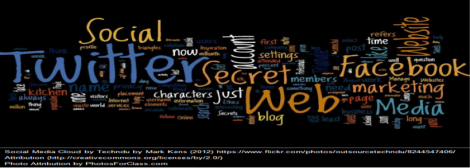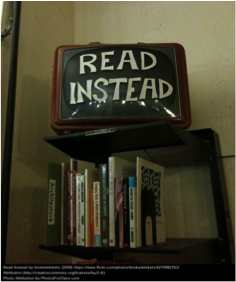June L. Laurenson | October 23, 2017
We live in a world that is constantly online, where speed, brevity, and accessibility enhance productivity and provide instant gratification. Multi-tasking is a prized asset. Things become condensed, abbreviated, or omitted, but is less necessarily more, especially in the Arts?
Many social media platforms thrive on brevity. Snapchat photos last seconds before they vanish, and Twitter limits its users to tweets of 140 characters. I usually struggle to keep within this limit, and often end up sending a stream of linked threads to convey my message. But is the essence of what I’m saying accurately captured in such a concise means of communication? Are my series of short tweets going to result in confusion as the original message gets lost within the restriction of 140 characters?
According to the Daily Telegraph, studies have shown that the concentration span of the average modern-day adult is eight seconds – less than that of a goldfish. Brevity extends beyond social media; in the Arts world, there have been calls for classical music concerts to be made shorter in length to attract younger audiences. But how do you shorten a piece of art? What aspects stay? Which ones go? What does this mean for the Arts in the future, particularly within the field of literature?
Currently, shortened forms of original literary texts abound in the form of abridged books, where major themes and plot-lines are kept but are diluted in order to simplify the text. Often, the original is condensed so much that it loses the author’s narrative charm. Instead, the focus is centred more on the main plotline than the creative narrative strategies used to convey important morals and nuances in the text. Similarly to the way in which my restricted-length tweets roughly transmit what I am trying to communicate, an abridged book provides the bones of the story, while its deeper meanings – often gleaned from the more tedious and wordy sections of a book – are cut out as being unnecessary. The essence of the novel is thus lost to the consumer who gains a different experience from it than a reader of the original. Despite this, abridged books still require the consumer’s literary imagination to bring the text to life which, according to Bachelard, ‘add[s] hope to our feelings, a special vigour to our decision to be an individual, a tonus even to our physical life’.
Television and film dramatisations also play a role in shortening, and often re-writing, literary works. By transferring a novel from page to screen, audiences are presented with the physiognomy of characters and landscape; thus, no imagination is required on their behalf. While nuances in an author’s narrative convey moral value to their readers, screened adaptations are considered more valuable as a form of instant entertainment than for any didactical message; indeed many of the details and nuances are lost in the production process, or even re-written in order to ‘sex up’ the production.
Whilst it is laudable that literature can be swiftly conveyed and enjoyed in this accessible and easily understandable way, absorbing it by this means becomes a passive and superficial activity where consumers maintain both a physical and psychological distance from the characters or events, rather than taking more time to become completely immersed within another’s thought processes or emotions. In a recent BBC interview, author Robert Harris claimed that the novel has moved away from the ‘central position in culture’ and has been replaced by the DVD box set, which has become ‘our modern novel’ [2]. It seems that in our modern busy lives, brevity of storytelling is more important than the fine details. So, what does this mean for the future of literature?
Some authors and publishers fear that the increasing use of the internet for entertainment coupled with an ever-decreasing attention span could sound the death knell for novels in the future [3]. However, one hopes that there will always be a place for books, whether they be of the physical or electronic variety. In this always-online culture, reading offers a valuable means of escape, far from the tribulations of politics and society; we need our imaginative retreats for repose and restoration. Becoming immersed in a meticulously described landscape, or in a character’s complex consciousness can only be achieved through lengthy, beautifully crafted, and creative narratives. In recently offering some users the option of double-length tweets, perhaps Twitter is now realising that brevity is not always better.
About June
I am a PhD candidate in English Literature at the University of Edinburgh researching Anthony Powell’s use of Gothic strategies in his ‘Dance’ novels. My research interests include nineteenth and twentieth century literature, the links between literature and society, identity construction and alterity, spatial theory, and the Gothic. Twitter: @_Tattycoram_.
Edited by Sini Eikonsalo, Christa Burgin, and Mary Pura.
Works cited:
[1] Bachelard, Gaston, On Poetic Imagination and Reverie, selected, introduced and annotated by Collette Gaudin, (Thompson, Conn: Spring Publications, 2014), ebook, Loc. 1333 (47%).
[2] ‘Have box sets killed the novel?’ BBC Radio 4, ‘Today’, 4 September, 2017



